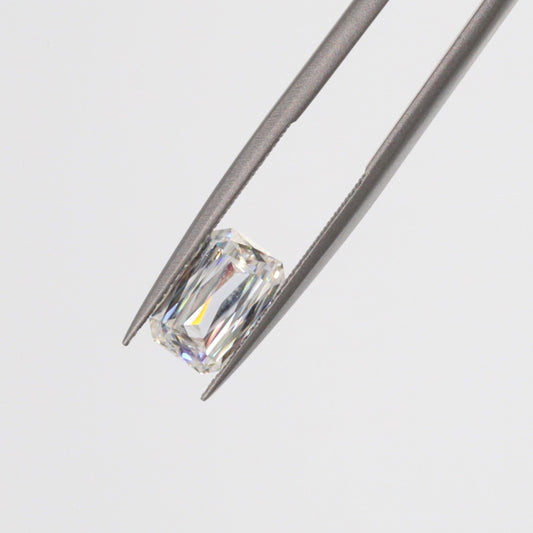When it comes to jewelry, metal allergies such as brass allergy can be a real problem. If you have sensitive skin that reacts to particular types of metal, don't worry because there are ways to avoid irritations and still have gorgeous rings, earrings, and necklaces.
Here, we'll look at a few of the most common symptoms of metal jewelry allergies and the metals that cause reactions, and then we'll give you some tips for fantastic alternatives.
Symptoms of Metal Jewelry Allergies
Metal jewelry allergies, such as rose gold allergy or yellow gold allergy, are generally very easy to spot. The symptoms typically appear within one to two days after exposure and include common signs such as redness and itching or a warm sensation on the area of the skin that came into contact with the jewelry. An earring allergy will show these symptoms, and there could also be swelling. If you see these signs, remove the jewelry immediately.
Common Metals That Cause Allergic Reactions
Some metals are more allergenic than others, so brass allergy, zinc alloy metal allergy, and silver allergy are all quite common when looking at specific metals that cause allergic reactions. It's important to be aware of the metals that most often cause jewelry allergies so you can avoid them if your skin is sensitive.
Nickel
Nickel is a metal that is often incorporated into jewelry and causes allergic reactions. Similar to a brass allergy for ears or a pewter earrings allergy, nickel in earrings can cause the allergic symptoms described above.
Brass
Is brass hypoallergenic? Brass, a blend of zinc and copper, is a lower-grade base metal that frequently causes allergic reactions. If you're allergic to brass, avoid plated brass jewelry, too. Also, nickel jewelry is the most common cause of metal allergies.

Rose Gold and Yellow Gold
Does rose gold have nickel? Because of casting processes, the rose gold you buy might have small traces of nickel, potentially leading to allergic reactions. However, rose gold itself (when not contaminated) is not likely to trigger an allergic reaction.
Plated Metals
Sometimes jewelry is created with metal plating, which is essentially an outer coating, but this doesn't mean it can't cause an allergic reaction. Despite what the jewelry is coated with, the interior metals can still cause symptoms of a jewelry allergy. The only foolproof way to avoid an allergic reaction is to ensure your jewelry is created purely with a metal that is known not to cause allergic reactions.
Avoiding a Jewelry Allergy
The best way to avoid a jewelry allergy is to choose a metal that is hypoallergenic or shown not to provoke allergic reactions. Jewelry for people with metal allergies is created with these types of metals.
Jewelry for People With Metal Allergies
Hypoallergenic materials, or those that are shown not to cause allergic reactions, are the best choices in terms of rings, necklaces, and earrings for people with metal allergies. Some particular metals are popular choices for people who have had allergic reactions to jewelry in the past.
Are Zinc Alloy Jewelry Safe
Having a zinc alloy allergy is rare, affecting only a few individuals. Typically, zinc metal compositions include lead, nickel, and copper. Nickel is the primary allergen to watch out for, while lead poses toxicity concerns.

Nickel-Free and Hypoallergenic
If you have a nickel allergy, look for jewelry that is specifically marked as nickel-free. Hypoallergenic jewelry will also be specifically marked as such, so you can make the choice that will ensure you don't suffer from an allergic reaction.
Platinum
Platinum is known as a metal that is safe in jewelry for people with metal allergies, such as brass allergy. Why is platinum hypoallergenic? First of all, it is one of the purest metals available for crafting jewelry. This means you don't have to worry about alloys that often cause allergic reactions. In addition, it is dense and durable, which are added benefits that make it a wonderful choice for important jewelry that is worn on a daily basis, such as engagement rings.
14-karat Gold and Above
Many jewelers recommend jewelry with 14-karat gold or higher in order to avoid allergic reactions. Gold that is 14-karat is more scratch-resistant than 18-karat or higher, however, so this makes it well-suited to jewelry that is worn frequently. Solid gold avoids the problem of alloys, or combinations of different metals, which are often the culprit when it comes to jewelry allergies such as brass allergy.
Check the Metals When Shopping
If you have had allergic reactions to jewelry before, you know how important it is to check the metal content on any jewelry you purchase. Avoid common allergens such as brass, nickel, and other alloys. Opt for jewelry made with metals that are known to be hypoallergenic, such as platinum and solid gold.
Shop Gema&Co
Gema&Co offers jewelry made with platinum and 14-karat gold, both known as reliable choices when it comes to hypoallergenic jewelry. Shop the gorgeous collection of moissanite engagement rings at Gema&Co crafted with platinum and 14-karat gold, and rest assured that you will have an investment piece that will last for generations to come.
Like what you read and want more like it? Gema&Co has many more articles on moissanite, just like this one. Click here to read more!




